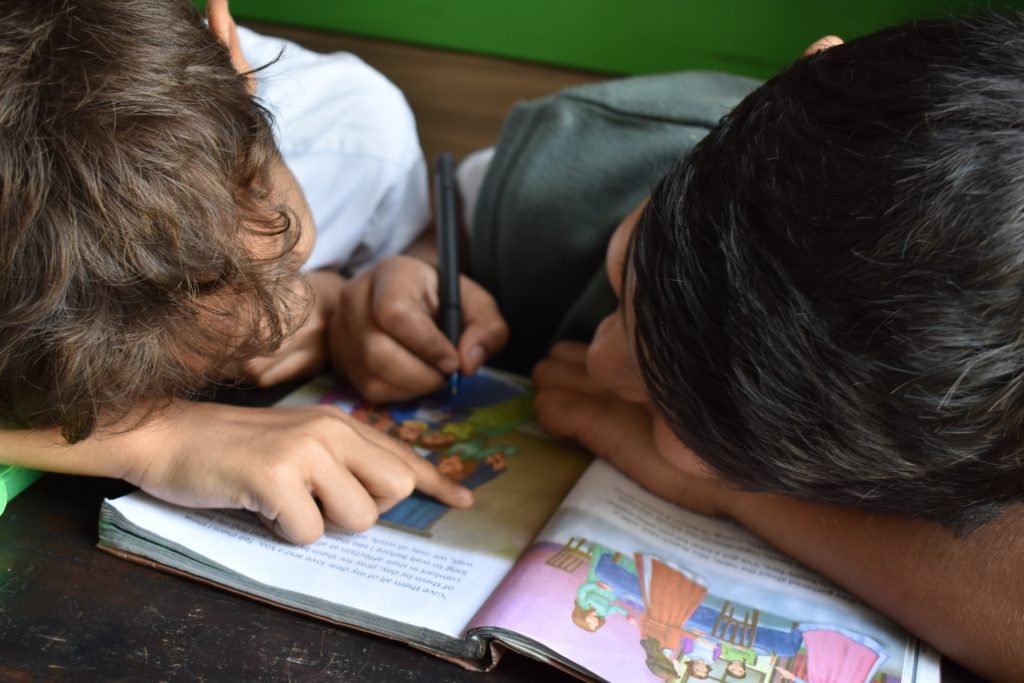The Value of Learning a New Language
It is immensely valuable to know at least one foreign language in today’s globalized world, for both personal and professional benefits. Therefore, investing time and energy in learning a new language should be a priority. Although it takes time and effort, the value of learning a new language is absolutely worth it.
Language learning for kids
Language learning is even more important for kids, as their minds are like sponges and they have the opportunity to learn a new language starting from a young age.
Whether you want your child to learn a language to be connected to their own heritage, or for them to have benefit from the value of knowing a second language, your child will thank you for it later. Whatever the reason may be, acknowledging the ‘why’ is crucial to help ensure the success of your child learning a new language. The ideal age to start is between 1-3, but especially if you start later then you can have the dialogue of the ‘why’ with your child. This might also help them feel more motivated, especially if it means, for example, getting to speak with grandma and grandpa!
Some ways you can teach your child a second language from the comfort of your own home is to make it fun, make it consistent, create a positive learning environment, and use technology. For example, you can play games and sing songs in the language your child is learning, set up playdates for your child with native speakers, read books and watch movies in the language, and pass educational technology time off as ‘tech time’! Technology and many modern tools are a huge help, like language apps for example: there are so many on the market today! A very popular one is Babbel that also has specific programs for students. Other resources include language learning podcasts, YouTube channels and subtitles on your child’s favorite movies!
While some have been concerned that learning a second language may distract from a child developing his or her language skills in the native language, it has been found that it actually helps to improve grammar in the native language, improve reading skills and help create building blocks to better understand languages in general.

The benefits on the brain and mind
Learning and advancing in a new language has incredible benefits on the brain and on the mind. Researchers have discovered that learning a second language leads to being more creative, being better with problem solving, and having a better ear for languages. These benefits greatly apply to the academic, professional and personal world. It also gives you a better ability to learn a third, fourth, or fifth language!
It also leads to be better memory, better flexibility of mind, and better multi-tasking abilities as bilingual people are used to having to switch between two different languages. Recalling vocabulary, grammar rules, etc. from different languages will greatly help to improve your memory, and you will see the benefits of this in other aspects of your life as well.
Learning a new language delays aging of the brain and onset of dementia and Alzheimer’s. Your brain is constantly getting a workout being bilingual, and this gives you the physical benefit of your brain being kept healthy for longer. There is a common phrase ‘to keep your mind sharp’, and knowing a second language helps you keep your mind sharp!
It has also been found that learning a second language leads to greater empathy, as bilingual kids perform better on tests that require the understanding of someone’s opinion.
The benefits on future career paths and studying abroad
Learning a foreign language can open up doors in the future for your child.
For example, if your child wants to study abroad knowing the local language can make the experience even more productive and enriching for them. Being able to study, converse, and make connections where you study can significantly open up doors for your child’s future and help enable them to make the most of their time abroad. It also gives them a better chance at understanding the local culture better by knowing the language already. Acclimating to another culture is an experience, and having the language skills already helps to make this transition easier.
Career wise, knowing a language can really help someone be more confident and have more opportunity in today’s globalised world. Whether it be working abroad, working on an international team, getting a promotion, working abroad, scaling to management, or getting a raise or higher starting salary, knowing a language can be extremely beneficial in the workplace. If you want to work in a particular industry or for a certain company, knowing a certain language can also help you stand out as a candidate. For example, if you apply to a job where the company has its HQ abroad, knowing the local language at HQ could open doors for you.
Are you encouraging your kids to learn a new language? If yes, what kinds of tools are you using?
*This is a collaboratively written post with Emily Jones (AD)

